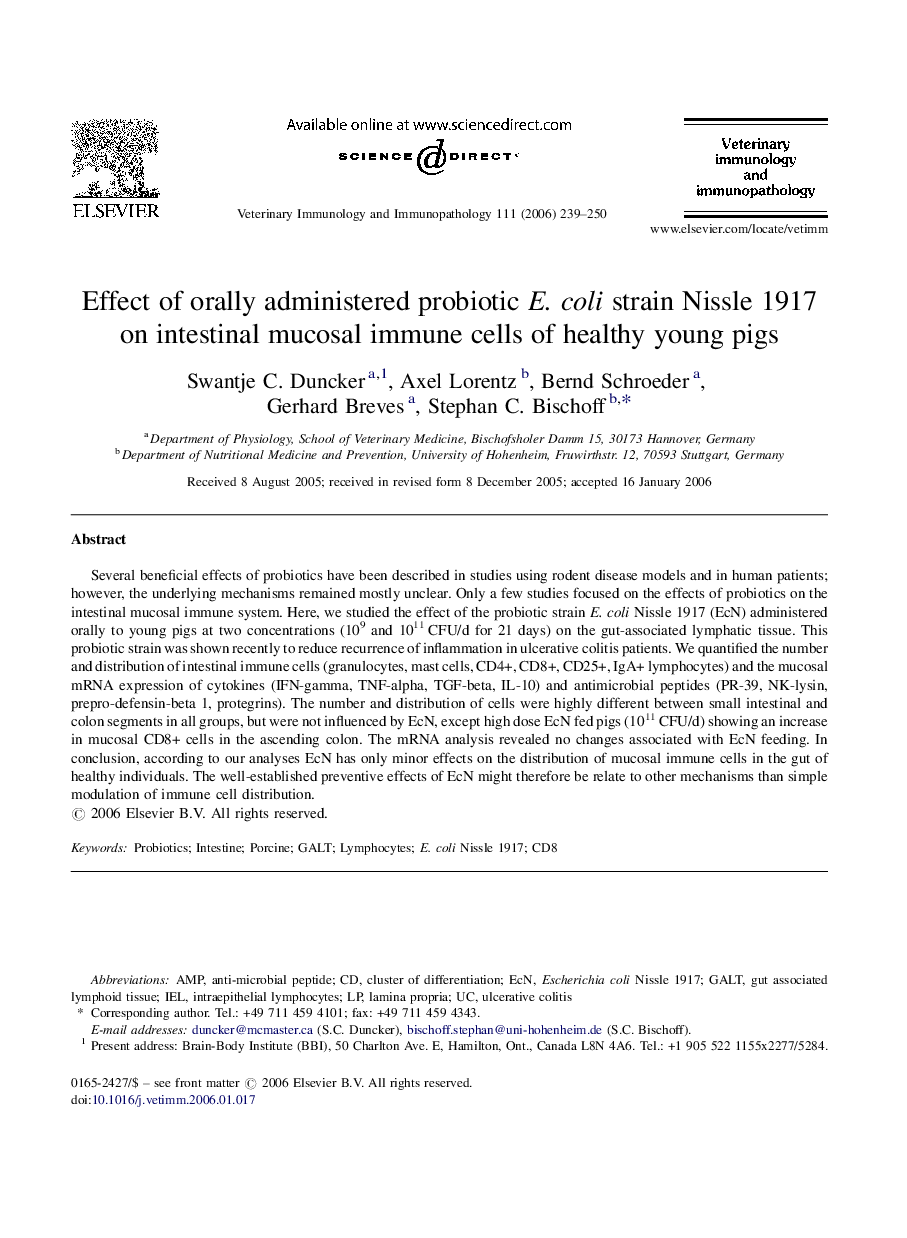| Article ID | Journal | Published Year | Pages | File Type |
|---|---|---|---|---|
| 2463488 | Veterinary Immunology and Immunopathology | 2006 | 12 Pages |
Several beneficial effects of probiotics have been described in studies using rodent disease models and in human patients; however, the underlying mechanisms remained mostly unclear. Only a few studies focused on the effects of probiotics on the intestinal mucosal immune system. Here, we studied the effect of the probiotic strain E. coli Nissle 1917 (EcN) administered orally to young pigs at two concentrations (109 and 1011 CFU/d for 21 days) on the gut-associated lymphatic tissue. This probiotic strain was shown recently to reduce recurrence of inflammation in ulcerative colitis patients. We quantified the number and distribution of intestinal immune cells (granulocytes, mast cells, CD4+, CD8+, CD25+, IgA+ lymphocytes) and the mucosal mRNA expression of cytokines (IFN-gamma, TNF-alpha, TGF-beta, IL-10) and antimicrobial peptides (PR-39, NK-lysin, prepro-defensin-beta 1, protegrins). The number and distribution of cells were highly different between small intestinal and colon segments in all groups, but were not influenced by EcN, except high dose EcN fed pigs (1011 CFU/d) showing an increase in mucosal CD8+ cells in the ascending colon. The mRNA analysis revealed no changes associated with EcN feeding. In conclusion, according to our analyses EcN has only minor effects on the distribution of mucosal immune cells in the gut of healthy individuals. The well-established preventive effects of EcN might therefore be relate to other mechanisms than simple modulation of immune cell distribution.
